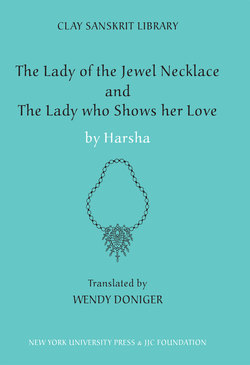Читать книгу The Lady of the Jewel Necklace & The Lady who Shows her Love - Harsha - Страница 14
На сайте Литреса книга снята с продажи.
Оглавлениеa fourth, that Rajya·vardhana retired to a hermitage after their father’s death.
Harsha died without leaving an heir. On his death, one of his ministers usurped the throne. His empire did not survive him.
He was a cosmopolitan king, known as a patron of the arts and of all religions. Besides the poet Bana and another famous poet, Mayura, he also kept at his court a man named Matanga Divakara, a critic and dramatist who came from one of the excluded, Dalit castes, a candala. (The Kashmiri historian Raja·shekhara first made this assertion in the ninth century. Sylvain Levi identifies him as a Jain, but his name indicates his low caste origin (1963: 184–95)). Harsha was also a religious eclectic; two of his three plays (the ones translated in this volume) are dedicated to the Hindu god Shiva, while the third, ‘How the Nagas were Pleased’ (Nagananda), invokes the Buddha. Such eclecticism is unprecedented in Sanskrit drama, D. Devahuti claims; she continues: “Harsha’s quinquennial assemblies further confirm his allegiance to both Hinduism and Buddhism, which were beginning to show increasing signs of convergence. The assemblies were in the Buddhist tradition but were held at the holy Hindu site of Prayaga. Donations distributed on the occasion benefited followers of all sects” (Devahuti 1970: 154–7). Harsha may have became a convert to Buddhism in his later life; we know that he sent a mission to China. ________
